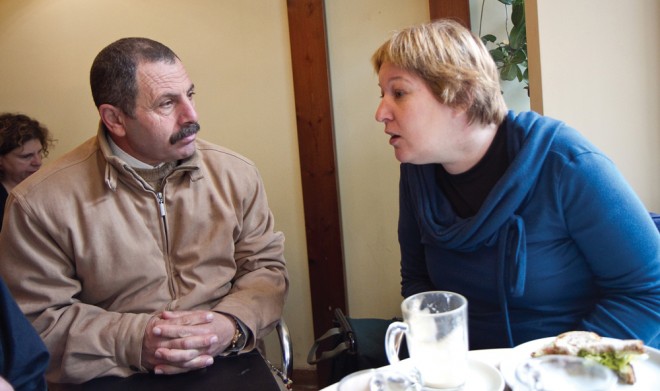
When the Nazareth Academic Institute (NAI) opened its doors in 2010, the fact that it was the first Arab university accredited in Israel was just one of the school’s distinguishing characteristics.
“We look at all our subjects through the lens of peace studies, which is unique,” says Shany Payes (SPI ’08), director of the peace studies program at the university.
That means curricula in each of the university’s degree programs – communication, chemistry and occupational therapy (with computer science soon to be added) – incorporate study of peace and multicultural issues.
“[SPI] helped very much to design my courses and my program, and it was very enriching in terms of the people that I met,” says Payes, who was a participant when the NAI was pursuing accreditation from the Israeli Council for Higher Education.
Though jointly run by Arabs and Jews (Payes is Jewish), NAI’s student body to date has been predominantly Arab and overwhelmingly female. So far, 80 students have studied at NAI, with 40 more expected to enroll for the fall of 2012. The university has also acquired land just outside Nazareth where it will begin building a new campus in early 2013. Once that expansion is complete, Payes says, the university plans to increase the size and diversity of its student body.
In the meantime, though, the NAI is offering opportunity for higher education to an underserved group within Israel. Payes says that linguistic, cultural and geographic barriers make it very difficult for Israel’s Arab citizens to attend Israeli universities. A university degree, she adds, boosts an Israeli Arab woman’s chances of finding employment from 20 percent to 80 percent.
“We really want to become a place of meeting and encounter and transformation,” she continues, noting that Israeli society remains largely segregated along racial and religious lines. “We hope to be a model of how Arabs and Jews can work together for the same vision. Separation is not a way forward.” — AKJ